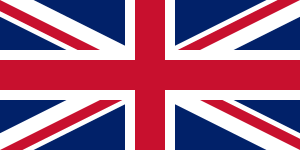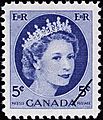British people facts for kids

|
|
| Total population | |
|---|---|
|
|
| Regions with significant populations | |
| 57,678,000 | |
|
|
|
|
|
|
|
|
|
|
| 700,000 | |
| 400,000 | |
| 291,000 | |
| 250,000 | |
| 247,899 | |
| 240,000 | |
| 236,669 | |
| 150,000 | |
| 115,000 | |
| 79,447 | |
| 59,000 | |
| 51,000 | |
| 45,000 | |
| 45,000 | |
| 44,000 | |
| 44,000 | |
| 41,000 | |
| 39,989 | |
|
|
| 34,279 | |
| 34,000 | |
| 32,000 | |
| 29,000 | |
| 28,000 | |
| 27,000 | |
| 26,000 | |
| 25,000 | |
| 25,000 | |
| 23,000 | |
|
|
| 18,000 | |
| 16,732 | |
| 9,000 | |
| Languages | |
|
|
| Religion | |
|
|
The British people, or Britons, are the citizens of the United Kingdom of Great Britain and Northern Ireland, the British Overseas Territories, and the Crown dependencies.
When used in a historical context, "British" or "Britons" can refer to the Celtic Britons, the indigenous inhabitants of Great Britain and Brittany, whose surviving members are the modern Welsh people, Cornish people, and Bretons. It also refers to citizens of the former British Empire, who settled in the country prior to 1973, and hold neither UK citizenship or nationality.
The Union of the Crowns in 1603 and the creation of the Kingdom of Great Britain in 1707 triggered a sense of British national identity.
The notion of Britishness and a shared British identity was forged during the 18th century and early 19th century when Britain engaged in several global conflicts with France, and developed further during the Victorian era. The complex history of the formation of the United Kingdom created a "particular sense of nationhood and belonging" in Great Britain.
Modern Britons are descended mainly from the varied ethnic groups that settled in Great Britain in and before the 11th century: Prehistoric, Brittonic, Roman, Anglo-Saxon, Norse, and Normans. Since 1922 and earlier, there has been immigration to the United Kingdom by people from what is now the Republic of Ireland, the Commonwealth, mainland Europe and elsewhere; they and their descendants are mostly British citizens, with some assuming a British, dual or hyphenated identity. This includes the groups black British and Asian British people, which constitute around 10% of the British population.
The British are a diverse, multinational, multicultural and multilingual society, with "strong regional accents, expressions and identities".
The population of the UK stands at around 66 million, with a British diaspora of around 140 million concentrated in the United States, Australia, Canada, and New Zealand, with smaller concentrations in the Republic of Ireland, Chile, South Africa, and parts of the Caribbean.
Images for kids
-
Medieval tapestry showing King Arthur, a legendary ancient British ruler who had a leading role in the Matter of Britain, a national myth used as propaganda for the ancestral origins of the British Royal Family and their British subjects.
-
The Battle of Trafalgar by J. M. W. Turner (oil on canvas, 1822–1824) combines events from several moments during the Napoleonic Wars' Battle of Trafalgar—a major British naval victory upon which Britishness has drawn influence.
-
A famous First World War-era recruitment poster, stressing the concept of British national identity
-
Britons gathered in Whitehall to hear Winston Churchill's victory speech on 8 May 1945
-
Postage stamp with portrait of Queen Elizabeth II, 1954
-
British and Chilean flags in a monument in Antofagasta city
-
Cecil John Rhodes, the 6th Prime Minister of the Cape Colony (divided between two provinces in modern-day South Africa) and founder of the De Beers diamond company.
-
Paddy Mayne from County Down; a founding member of the SAS; was one of the most decorated British soldiers of World War II. He also played rugby for Ireland.
-
Fish and chips, a popular take-away food throughout the United Kingdom, has been described as the quintessential British dish.
-
J.K. Rowling is one of the world's best selling British authors. Her Harry Potter series of books have sold more than 400 million copies worldwide.
-
The Proms is an eight-week summer season of daily orchestral classical music concerts held across the United Kingdom. The Last Night of the Proms celebrates British tradition with patriotic classical music of the United Kingdom.
-
Westminster Abbey is used for the coronation of the British monarchs, who are also made the head of the Church of England.
See also
 In Spanish: Pueblo británico para niños
In Spanish: Pueblo británico para niños















